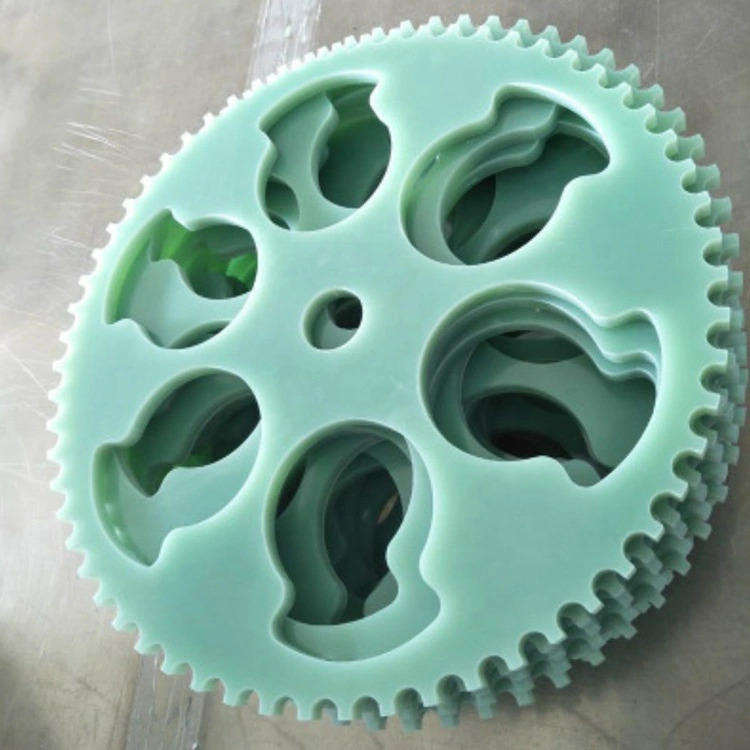Epoxy materials have emerged as a cornerstone of industrial and electrical manufacturing, celebrated for their robustness, adaptability, and resistance to extreme conditions. The global epoxy resin market surpassed $10 billion in 2021, driven by applications in aerospace, automotive, and electronics.
Yet, machining epoxy is no ordinary task—it demands precision, the right tools, and a deep understanding of the material’s unique properties. This guide from YILONG unpacks the nuances of Epoxy Machining, offering actionable insights for manufacturers aiming for perfection and innovation in their processes.

Epoxy’s machinability is not a one-size-fits-all quality. Factors like composition, reinforcement, and application determine machining efficiency and precision. Selecting the right epoxy type is crucial for productivity and avoiding costly errors.
l Hardness and Stability
High-hardness epoxy resists stress and deformation, enabling precision cutting and shaping. In electronics, where intricate PCB designs are standard, epoxy’s stability ensures long-term reliability. Its durability also benefits prototype molds, where detail retention is critical.
l Thermal Resistance
Thermally resistant epoxies withstand the heat generated during high-friction machining. In aerospace, they maintain stability under extreme temperature fluctuations. In high-speed CNC machining, thermal stability prevents deformation and ensures consistent results.
l Reinforcement for Durability
Glass fiber-reinforced epoxies like G10 excel in mechanical strength and wear resistance. They are widely used for structural parts that endure repeated stress without compromising performance.
Understanding the varieties of Machinable Epoxy helps match material choice to specific projects:
l Standard Epoxy Resins – Versatile and economical for general prototyping and light-duty applications.
l Glass-Filled Epoxy – Enhanced strength for industrial equipment and heavy machinery components.
l G10 Epoxy Sheets – Preferred for electronics due to superior insulation and mechanical robustness.
Achieving superior results requires pairing high-quality epoxy from YILONG with advanced machining tools:
l CNC Machines – Provide programmable accuracy for complex geometries and automated precision cuts.
l Carbide-Tipped Tools – Maintain sharpness when cutting dense epoxy, reducing tool replacement costs.
l Diamond-Coated Tools – Essential for abrasive composites like glass-filled epoxy, minimizing chipping and extending tool life.
Following optimized machining protocols is key to maintaining material integrity and production efficiency:
l Heat Management – Use cooling systems and adjust cutting speeds to prevent heat-induced deformation.
l Feed Rate Consistency – Keep feed rates steady to avoid cracking and surface defects.
l Dust Control & Workplace Safety – Employ dust extraction systems and require PPE (masks, gloves, goggles) to protect operators.
The adaptability of epoxy materials has secured their place in high-performance industries:
l Electronics Manufacturing – G10 glass epoxy is indispensable for circuit boards, connectors, and protective casings, offering insulation and structural integrity.
l Mold Making – Lightweight epoxy molds deliver high precision for automotive and aerospace components while reducing costs.
l Structural Components – Reinforced epoxy serves in aerospace brackets and EV battery enclosures, combining strength with corrosion resistance.
Even with its advantages, Epoxy Machining poses unique challenges:
l Chipping and Cracking – Use sharp tools, optimized cutting speeds, and the right tool angles.
l Heat-Induced Deformation – Apply cooling systems and select heat-resistant epoxy grades.
l Safety Risks – Install ventilation and filtration systems to manage dust, and enforce PPE usage.
Mastering Epoxy Machining enables innovation in industrial and electrical applications. With the right materials, tools, and processes, manufacturers can achieve unmatched precision and efficiency.
YILONG supplies high-strength FR4/G10 epoxy glass fiber sheets in multiple sizes, ideal for custom machining. Explore our fiberglass epoxy product catalog and request tailored solutions for your manufacturing needs.
Contact YILONG to discuss your custom Epoxy Machining projects and elevate your production capabilities.